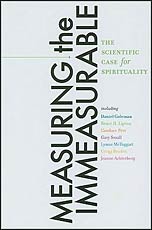You Can Help Emphasize and Store Positive Experiences through Conscious Attention.
"As you know from school (and this is corroborated by hundreds of studies) you remember something best when you make it as vivid as possible and then give it heightened attention over an extended period.
"That's exactly how to register positive experiences in your implicit memory, which will slowly but surely change the interior landscape of your mind.
Three simple steps:
"1. Help positive events become positive experiences:
• "Pay extra attention to the good things in the world and in yourself. For example, notice things that go well, or people who treat you kindly, or when you succeed at something. As we know, it is ignorance, fundamentally, that leads to suffering — and not seeing the good that is actually present is a kind of ignorance.
• "As a mindfulness practice, focus on the sensations and the feelings in a positive experience since they are the pathway to emotional memory.
• "Deliberately create positive experiences for yourself. Examples include acts of generosity, evoking compassion, or recalling a time when you were happy.
"2. Savor the experience as a kind of concentration practice; keep your attention on it for many seconds while letting it fill your body and mind.
"3. Sense that the experience is soaking into you, registering deeply in emotional memory. You could imagine that it's sinking into your chest and back and brainstem, or imagine a treasure chest in your heart.
"These three steps usually take half a minute or less, and with practice you'll get even faster. Every day, there are many opportunities for noticing and absorbing good experiences. Any single instance won't make a big difference, but as the days and weeks add up, the mounting pile of positive implicit memories will provide more resources for coping — and practice — and brighten your inner landscape.
"Because 'neurons that fire together, wire together,' momentary states become enduring traits. These traits then become the causes of more wholesome states, which nourish your traits further in a positive cycle. To paraphrase Mathieu Ricard: if you take care of the minutes and the hours — the days and years will take care of themselves.
POSITIVE EXPERIENCES HAVE MANY IMPORTANT BENEFITS.
In general
• "Emotions organize the mind as a whole, so positive feelings and their related body sensations, thoughts, and desires have global effects.
• "Positive experiences lower the stress response in your body by dampening the arousal of the sympathetic nervous system (the 'fight or flight' wing) and by activating the parasympathetic nervous system (relaxed and contented). For example, positive feelings reduce the impact of stress on your cardiovascular system.
• "They increase psychological resilience.
• "They lift mood and protect against depression.
• "They promote optimism — another bulwark against depression.
• "Over time, positive experiences help counteract the effects of trauma or other painful experiences. When you remember something painful from your past, your brain first reconstructs that memory (including its emotional associations) from a few key elements, and then it reconstitutes it in storage with tinges of your state of mind when you recalled it the last time. This means that if you recall an event repeatedly with a dour, glum cast of mind, then your recollection of it will be increasingly shaded negatively. Alternately, if you recall it repeatedly with a realistically upbeat state of being, then it will gradually come to mind more and more with a more neutral quality: you will not forget the facts of whatever happened, but their emotional charge will slowly fade — and that can be a great relief.
• "They highlight key states of mind so you can find your way back to them in the future. So you can more readily tap into peace, contentment, strength, well-being, lovingkindness, etc.
• "They reward you for doing things that aren't always easy (like acting with unilateral virtue even when others are being difficult) and thus support your ongoing motivation."
